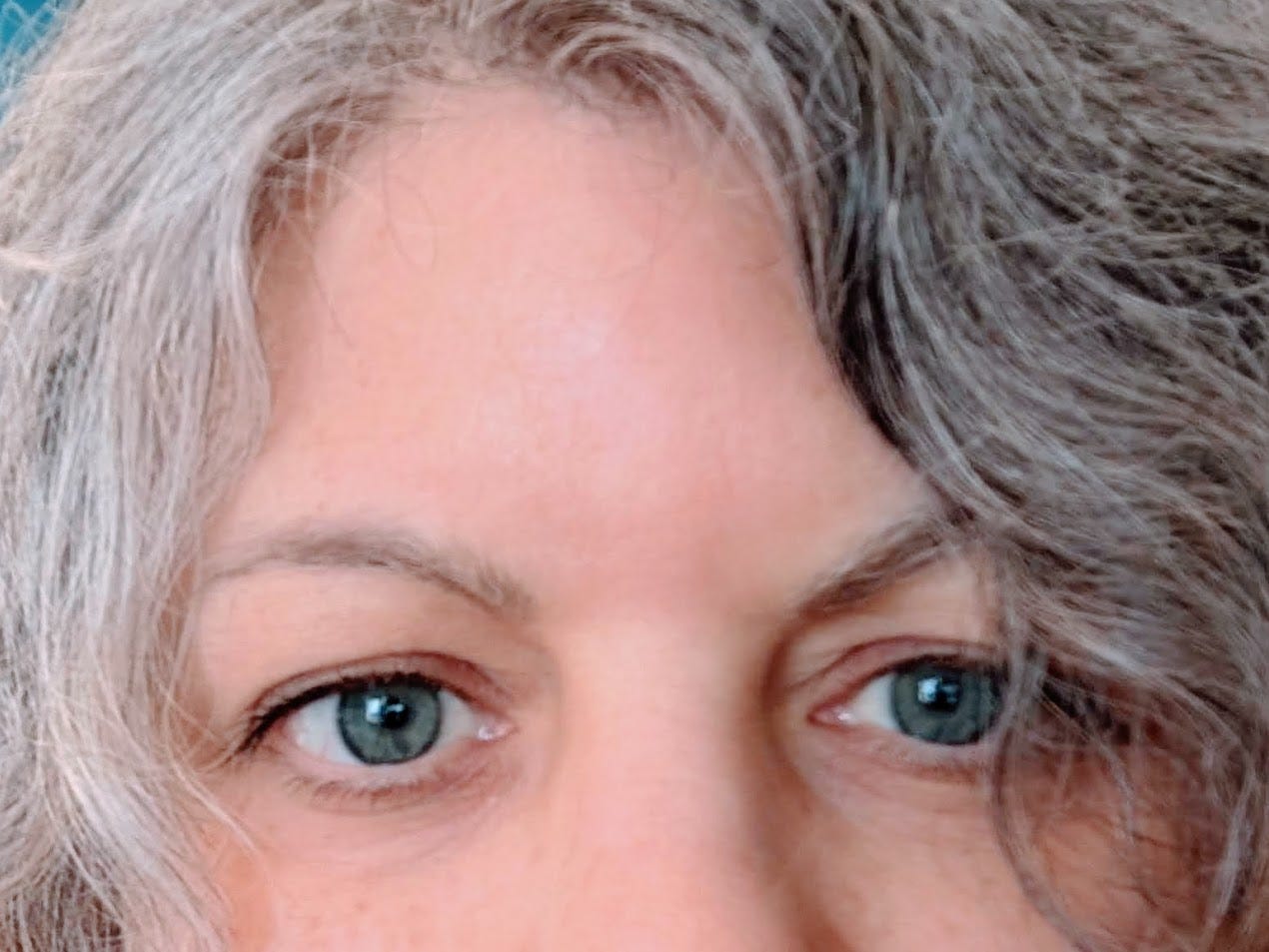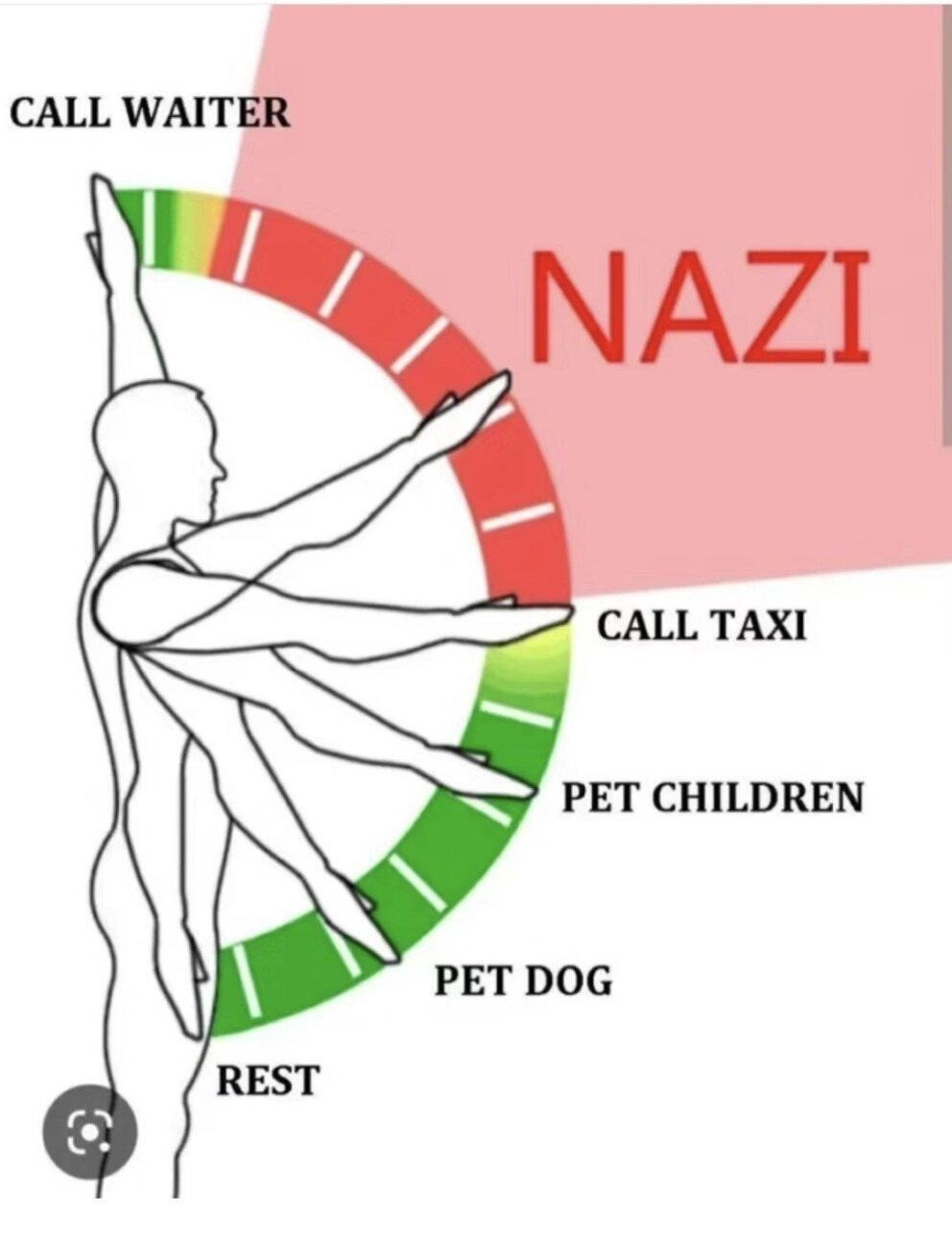Pay attention to what they tell you to forget. —Muriel Rukeyser, "‘Double Ode’"
Over coffee with women friends last week, the topic turned to our eyes. Oh, our eyes: could we still see worth a damn close up or far away? Would the inevitable cataract surgery fix the far but break the near? Scary thought. Like my mom before me, I’ve had to wear glasses to see beyond the length of my arms since childhood, and special computer glasses came about 20 years ago. But my eyes have always seen clearly up close, as if they were made for reading (or maybe needlepoint).
My vision is changing, but I can still see what’s right in front of me. Today I’m honoring my eyes and declaring my trust in them, no matter how frightening the images they shoot to my brain.
World-Pain Pop: A Theme Song
Jackson Browne was only 24 when he released “Doctor My Eyes” in 1972. I think my older sisters must’ve had the 45 single because I knew the lyrics by heart by the time they spoke to me as a teen. After 50 years, they speak to me more than ever.
Doctor, my eyes have seen the years
And the slow parade of fears without crying
Now I want to understand
I have done all that I could
To see the evil and the good without hiding
You must help me if you can
The catchy beat gives the song’s weltschmerz, or world-pain, urgency and a touch of self-irony. Then there’s the way he addresses an invisible healer, someone who can help undo the damage from taking it all in. Or is the song the real medicine?
I just found this new Playing for Change version in which he performs with the help of friends around the world. His older, more gravelly voice still rings true. With gratitude, I’ve got it on replay while I write.
Things to Never Unsee
I was clueless about many things as a teen, but the world-pain was already there. Being a descendant of European Jews means reckoning with the worst of humanity from an early age. It means having grainy black-and-white images of Hitler-saluting masses, emaciated bodies, and haunted faces in your head, and thinking while you’re brushing your teeth or walking down the street:
People did those terrible things, and other people—ordinary, respectable people who raised kids and went to church—averted their eyes.
To age with that knowledge is to watch in horror as history repeats itself. It’s to keep asking in disbelief:
Didn’t anyone learn anything?
The only way not to repeat history is to somehow keep it in front of your eyes without letting it eclipse the sky. The grandparents who lived it are almost gone from the earth, and the world on fire now seems like a fitful dream. Without witnesses, who could believe it ever happened?
The Nazi “Gesture”
In November, Germany’s coalition government collapsed. A German friend, whose mom is a Holocaust survivor, expects the rising neo-fascist party—Alternative for Germany, or AfD—to win elections in March, and he is making plans accordingly.
He doesn’t want to uproot his family and start over. But he said, “I am not repeating my grandparents.”
Economic suffering, especially in the former communist East, and the complex challenges of a multicultural society and influx of refugees have boosted the AfD to popularity among some Germans. Just as Hitler did, the AfD amplifies real social and economic problems, blames them all on minorities, and proposes extreme solutions to “cleanse” the nation. Not surprisingly, one of their agendas is to trivialize and memory-hole the Holocaust.
Hitler and the Nazis are just a speck of bird poop in more than 1,000 years of successful German history. —Alexander Gauland, AfD co-founder
Right. Murdering 6 million people is a mere speck to flick off one’s lapel.
Another force that has propelled the neo-fascists is the enthusiastic support of the richest man in the world, Elon Musk.
Last week my eyes told me that Musk, now the unelected leader of a shadow agency of the U.S. government, gave back-to-back Nazi salutes onstage at an American presidential inauguration.
Nobody can tell me what I did or didn’t see. My eyes function just as well in gaslight as daylight, and unlike my aging vision, my self-trust and independence of thought get keener every year.
Every rabbit-hole of commentary is irrelevant to the question, What did I just see?
To be as fair as possible, after reading the ADL’s bizarre framing of the salute as an “awkward gesture,” I stood up from my chair and tried it myself. It felt creepy, uncomfortable, unnatural. Unless your arm were possessed like Dr. Strangelove’s, you could not raise it that way accidentally even once, let alone twice. And why would a well-meaning gesture be accompanied by that belligerent bite of the lip?
Someone came up with this helpful illustration.
Some people are trying to argue that the “Roman salute” historically has meant other things. Right. It traces back to a 1784 painting of ancient Romans, “The Oath of the Horatii.” The artist, Jacques-Louis David, apparently made it up, as no Roman text describes it. In the early 1900s, the salute became a symbol of the rising Italian Fascist party; then the Nazis adopted it to hail their Führer. I can’t believe anybody has to say this, but saluting Mussolini is not better than saluting Hitler.
I’m pretty sure everyone in the civilized world sees this gesture for what it is and knows what it means—they definitely do in Germany, where it’s still illegal—yet here the media is talking about “speculation” and “controversy.” I’m so tired.
Believe Your Ears, Too
“The Party told you to reject the evidence of your eyes and ears. It was their final, most essential command.” —George Orwell, 1984
The scariest part is that no one booed Musk off the stage for giving a Hitler salute. The well-heeled, elite crowd kept on cheering like the audience at the Nazi rally in Madison Square Garden in 1939. (At least back then, one guy rushed the stage to try to stop it before he got dragged away.)
I’m sure many of them felt disturbed, especially when they thought about it later. But this is how fascism works: by shocking people into complicity with actions that beggar belief, even while those actions are backed by the pomp and power of the State. Fascism says:
It’s not happening, and you’d better clap.
Dietrich Bonhoeffer
German Christian minister Dietrich Bonhoeffer, writing from the Nazi jail cell where he awaited execution, observed that certain historical movements render large numbers of people “stupid.” By “stupidity” he meant a loss of the capacity for independent thought. As a pastor he felt compassion for these enthralled minions of an evil power, even as they themselves became “capable of any evil.”
The process at work here is not that particular human capacities, for instance, the intellect, suddenly atrophy or fail. Instead, it seems that under the overwhelming impact of rising power, humans are deprived of their inner independence, and, more or less consciously, give up establishing an autonomous position toward the emerging circumstances. The fact that the stupid person is often stubborn must not blind us to the fact that he is not independent. In conversation with him, one virtually feels that one is dealing not at all with a person, but with slogans, catchwords and the like, that have taken possession of him. He is under a spell, blinded, misused, and abused in his very being. Having thus become a mindless tool, the stupid person will also be capable of any evil and at the same time incapable of seeing that it is evil. This is where the danger of diabolical misuse lurks, for it is this that can once and for all destroy human beings. —Bonhoeffer
The Nazis hanged him on April 9, 1945. He was 39 years old.
My Mother
While Bonhoeffer had compassion for the perpetrators, my mother strangely directed her anger at the victims. As if their fates weren’t tragic enough, the ghosts of Europe’s Jews had a fierce woman in a calico dress yelling at them down the century:
Why didn’t you get out in time?!
If she could have time traveled, she would have gone back to shake Otto Frank for not getting his family out of Europe “when the signs were clear.”
We argued about this for decades. My answer was always some version of, “It’s complicated, Mom.” Like many others, Otto Frank tried and tried to emigrate to the U.S. Moreover, the end game of the Nazis is clear only in hindsight. Many people couldn’t imagine it until all the exits were blocked; others saw what was coming but couldn’t bear to leave their families. But most simply had nowhere to go. From 1932-1945, the U.S. accepted more Jewish refugees than any other country, but the number—132,000—was still pitifully small.
On the social platform that he owns and controls, Elon Musk spreads the “white replacement” theory spouted by the extreme right. This sick fantasy says that Jewish people advocate for refugees as part of a sinister plot to replace white Americans. There’s no point in trying to explain the real reasons human beings help other human beings. When people lack empathy, it’s impossible for them to recognize or value it in others. It’s a kind of blindness.
I’m glad my mom isn’t here to see what I just saw. For all her vigilance, I honestly don’t know if she would have believed her eyes.






I could feel your passion, Jody.
Carol Richardson
My mom always loved Jackson Browne. We have a strained relationship now, but remembering being a little kid and having my mom put on one of his records still gives me the warm fuzzies. She’d tidy up the house, I’d dust, and we’d sing along. When I was 11, she gave me a copy of Anne Frank’s Diary (hardback! wow!), and inscribed it with, “We must never forget.” I inherited a lot of things from my mother, not all of them good (poor eyesight, for one). But I sure hope I inherited her conviction to look around, see what was wrong, and call it out. There are things going on right now that we must never forget.